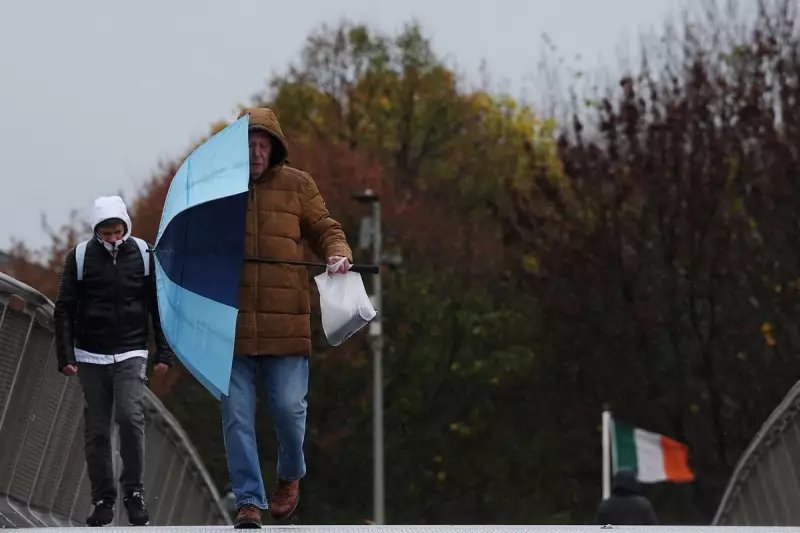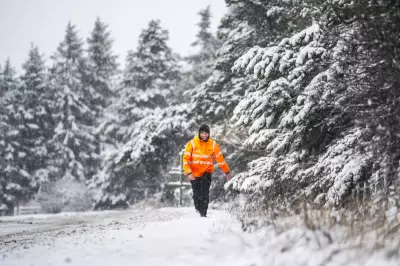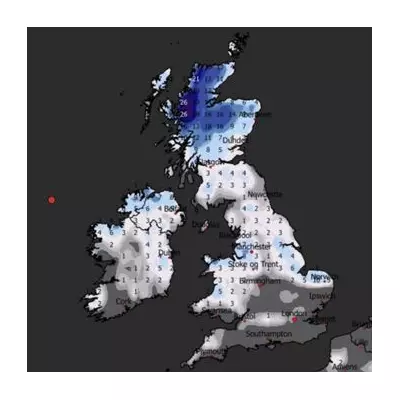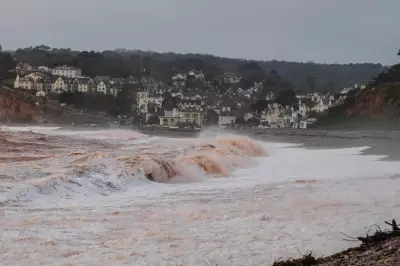
Storm Claudia Brings Chaos to Ireland
Parts of Ireland are facing significant disruption after Storm Claudia swept across the country, leaving a trail of damage in its wake. The storm, which moved over the island overnight, has resulted in widespread power outages and reports of flooding, particularly in the south-east region where rain warnings were in effect.
Widespread Impact and Emergency Response
On Saturday morning, thousands of homes and businesses found themselves without electricity. The ESB reported that less than 5,000 homes, farms, and businesses were without power as of 9am, with crews having worked since Friday to address the issues. A spokesman described the storm's impact on electricity infrastructure as "modest," consistent with previous wind warnings of a similar nature.
Dramatic scenes unfolded in Portarlington, located on the border of counties Laois and Offaly, where significant flooding occurred despite no specific rain warning being issued for that area. The situation was compounded by fallen trees blocking roads in various parts of the country. Social media footage also captured striking images of sea foam being violently whipped onto shores in Loughshinny, Dublin, and Bray, Co Wicklow.
Weather Warnings and Official Statements
Weather alerts played a critical role in the lead-up to the storm. A status orange rain warning was active for Dublin, Wexford, and Wicklow until 8am on Saturday, while a status yellow warning covered ten other counties, primarily along the east and south coasts, until 9am. Met Eireann had cautioned the public to be vigilant for "significant" flooding and hazardous travelling conditions.
Keith Leonard, the national director for Fire and Emergency Management, confirmed that local authorities had been preparing for the heavy rainfall since Thursday. He noted that the risk of flooding would persist even after the formal weather alerts were lifted, as water levels could continue to rise. A major complicating factor was fallen leaves clogging drains, hindering water runoff.
The storm's effects extended to travel, with Stena Line confirming the cancellation of some ferry services on Friday due to the adverse weather. In Northern Ireland, a yellow-level rain warning remained in place for counties Armagh and Down until noon on Saturday, also carrying a risk of flooding.
Political Response and Climate Concerns
Irish deputy premier Simon Harris, speaking in Co Kildare, expressed gratitude to the crews working to reconnect power. He also addressed the broader issue of flood defence, acknowledging the "huge frustration" felt by communities where funding for schemes has been announced but the delivery timeline is "still taking too long."
Mr. Harris, speaking at the Fine Gael Agriculture and Rural Affairs Development Conference, linked the severe weather to the wider context of climate change, noting we are "living through a period of significant climate change, more adverse weather events." However, he stressed the need to avoid defeatism, emphasising that more can be done to make communities and towns more resilient. He called for the delivery of flood defence schemes to be integrated into the government's promised infrastructure boost and for an examination of drainage systems.





